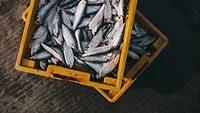New Plans for Food Safety Agency in Taiwan
A food safety office will be established in the near future as part of President Ma Ying-jeou's most recent bid to combat the tainted food scares that have shaken the nation over the past few months.
The president yesterday held a national security meeting in the wake of the tainted oil scare that tarnished the images of popular local food manufacturers, vowing to ease the people's worries over multiple discoveries of food oil that contained recycled waste oil and animal feed oil.
Ma called on the National Security Council (NSC) and the Executive Yuan to brief him on the ongoing probes concerning tainted food products, asking for an update on the investigations into all those involved and the handling of the confiscated tainted oil.
The new food safety office will mimic the operation of crisis intervention teams, said Ma. “The office will be in charge of food safety control issues in various government offices,” the president said.
Dishonest manufacturers and their tainted products have caused concern among the people and damaged Taiwan's image, said Ma.
The Presidential Office stated that Ma's goal during the national security meeting was to integrate all available executive resources, question industrial heavyweights suspected of involvement and raise government efficiency. This is the first time Ma has called for a national security meeting on tainted food issues.
Premier Jiang Yi-huah and government departments have been questioned by the public numerous times over the recent food scandals involving major oil manufacturers Chang Guann Co., Ting Hsin International Food Group and Cheng-I Food Co. In response to the criticism, Jiang replied that “no allowances would be made when it comes to stamping out tainted food products; we will continue investigating until there are no dishonest food manufacturers in Taiwan.”
Regarding the punishment of food manufacturers Cheng-I and Ting Hsin, the Ministry of Health and Welfare will be asking local governments to follow the procedure applied to Chang Guann. According to the Act Governing Food Safety and Sanitation, factory operations will be suspended at first, and forced shutdowns will follow if the companies are found guilty of further food tampering, said Jiang.
Looking for quick answers on food safety topics?
Try Ask FSM, our new smart AI search tool.
Ask FSM →








